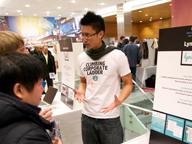Faculty News
—
Senior Research Scholar Shlomo Angel's findings on urbanization in the Philippines is cited
—

Excerpt from The Economist -- "Even with a perfect transport plan, Manila would probably have a problem. The population of the entire capital area rose from 18m to 23m between 2000 and 2010. It is dense: Shlomo Angel of New York University, who measures cities, estimates that it crammed 274 people into each hectare a decade ago, compared with 64 per hectare in Paris—and Manila will have got only more squashed since."
Faculty News
—

Excerpt from The Economist -- "Even with a perfect transport plan, Manila would probably have a problem. The population of the entire capital area rose from 18m to 23m between 2000 and 2010. It is dense: Shlomo Angel of New York University, who measures cities, estimates that it crammed 274 people into each hectare a decade ago, compared with 64 per hectare in Paris—and Manila will have got only more squashed since."



















